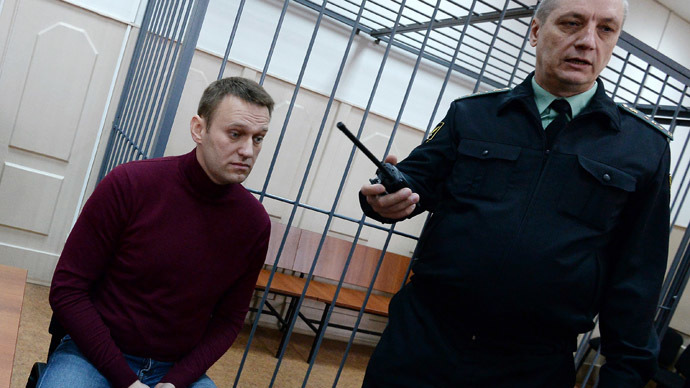
Planned Voter Suppression in 2014 Regional Elections
Publication: Eurasia Daily Monitor Volume: 11 Issue: 158
By:

Amid the continuous stream of news coming out of eastern Ukraine—not least the post-modern invasion of Ukraine by Russian forces—the upcoming regional elections in Russia have largely escaped notice. Elections for regional legislatures and governors were reinstated by then-president Dmitry Medvedev, partly to meet protesters’ demands in the wake of the 2011–2012 mass street demonstrations (Newsru.com, May 2, 2012). Gubernatorial elections will take place on September 14 in some 25 federal subjects of Russia, including Stavropol, Primorsky, Sakha-Yakutia and Voronezh regions. Controversially, elections will also be held in recently annexed Crimea, although not a gubernatorial election (Russian Central Election Commission, August 30). Regional elections in Russia, as in many other countries, are partially considered referenda on national politics. With that said, and with President Vladimir Putin’s exceedingly high approval ratings in opinion polls, the elections would seem to be a foregone conclusion in favor of the ruling regime. Yet, there is evidence that the Kremlin is planning to, nevertheless, influence the outcome of the elections.
First, it is planning to do so through the newly created “Anti-Maidan Council.” The Council, whose inaugural meeting took place on August 5, includes the leaders of the Don Cossack host and the Union of Orthodox Citizens, deputy head of the “Spetsnaz-Army Spetsnaz” group Yury Kalitov, as well as Yevgeni Fedorov, a harshly anti-American United Russia parliamentarian serving in the State Duma. The Council was formed to prevent “acts of protest after the regional elections on the 14th of September 2014, organized and created by Western ‘human rights defense’ funds.” The leadership of the Anti-Maidan Council has also recruited military veterans, Cossacks, and members of the Night Wolves motorcycle gang to help provide security at polling places and prevent the appearance of any “anti-constitutional measures” (Moskovskiy Komsomolets, August 3; RT, August 4). While liberal forces may be planning some kind of demonstration in various parts of the country following the elections (although this seems extremely unlikely given the patriotic fervor unleashed since the annexation of Crimea) the real aim of the Anti-Maidan Council seems to be to demonstrate support for Kremlin policies and to intimidate those thinking of voting against the ruling regime’s preferred candidates.
Second, the Kremlin is using the state’s legal apparatus to chasten popular opposition candidates such as Alexei Navalny. A popular Russian anti-corruption blogger, Navalny is perhaps the best-known leader of the 2011–2012 protests against the fraudulent electoral victories of United Russia and Putin’s return to the Russian presidency. Both during and after his failed Moscow mayoral run in September 2013, Navalny was prosecuted on tenuous grounds, including the purported embezzlement of funds from a logging company in Kirov Oblast (RIA Novosti, July 18, 2013). Navalny received a five-year sentence, which was temporarily suspended to allow him to run for the position of mayor of Moscow. Since that time, fresh charges have been brought against him: Navalny is now accused of embezzling more than 26 million rubles ($696,000) from French cosmetics giant Yves Rocher. He had been under house arrest, but on August 28, a Moscow court “upgraded” his status to a real arrest, which presumably includes a ban on maintaining his blog (Rossiskaya Gazeta, August 29). Thus, the Kremlin appears to be using the judicial system to suppress those who might lead or mount any kind of successful opposition campaign.
Third, the climate in Russia remains severely intolerant toward opposition movements, particularly those that might be perceived as having Western backing or connections to foreign organizations. Putin’s approval rating is exceptionally high, at 84 percent, although this marks a slight decline since the beginning of August (rbc.com, August 27). The Russian president’s approval ratings have been sky-high since the annexation of Crimea in March and are evidence of a “rally-round-the-flag” effect in the Russian Federation. Indeed, given the fact that Putin has had all summer to more massively and overtly intervene in the Ukrainian crisis but has only done so at the end of August could indicate that one reason for the timing of the intervention was to produce a wave of patriotic enthusiasm at home in time for the elections. It is also worth considering that the regime currently has no need to suppress the opposition in the manner it is doing, given the public mood. Rather, the government’s crackdown may be in anticipation of the consequences of an economic slowdown resulting from Western sanctions.
The regime in Russia is apparently readying state structures and pro-Kremlin organizations to intimidate the vote in the September regional elections and prevent opposition candidates from rising to power or prominence on the local level. While these kinds of tactics are not novel to the Russian Federation, in the context of the Ukrainian crisis they are alarming. The shadow of totalitarianism, this time propped up by nationalist patriotism, appears to be returning to Russia.




